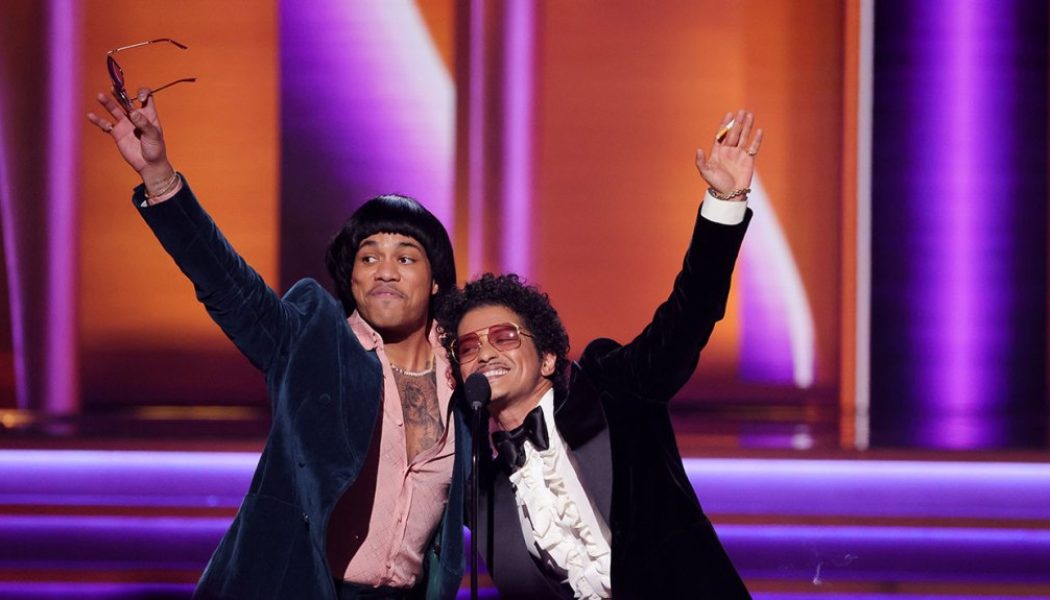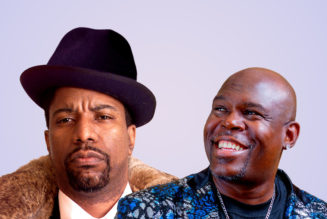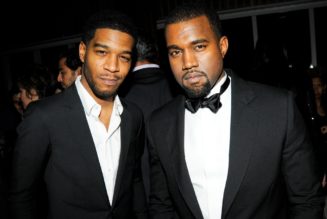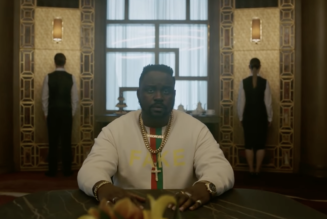
For all the recent controversy surrounding the Grammy Awards, this year the Recording Academy managed to spotlight a significant creator with an urgent message for the American public. And did anyone say anything more urgent than Ukrainian President Volodymyr Zelenskiy?
Not for lack of trying. “We’re here because music serves the world,” said Recording Academy CEO Harvey Mason Jr. in a pre-taped message, “and at the new Recording Academy” – the “new” emphasized with one of those thumb-points politicians do – “we serve music.”
For the last half-decade, as the rise of streaming drove lighter, more pop-friendly sounds to the top of the charts, music fans have been griping about the menu the academy has been offering. They have boldly made the case that the Grammys often recognize yesterday’s sounds today, without acknowledging the diversity of today’s music business. Many of them make good points. A few of them probably even watch CBS live. Because if the real question here is who the Grammys are for, they’re for people who do.
Just ask Trevor Noah. “This,” the host said in his opening monologue, “is a concert where we give out awards.” This year, at least, it was mostly a good one.
As for the awards, well, Jon Batiste won album of the year, plus four other awards; Silk Sonic won record of the year for “Leave the Door Open” and song of the year (which went to its writers) and Olivia Rodrigo won best new artist and two others. And since Batiste isn’t a big star and Silk Sonic is something of a throwback, the new Recording Academy didn’t exactly part with the past. If anything, it showed once again how creators and industry executives value certain kinds of music more than fans or critics.
Sometimes, that makes them look silly. “The Grammys have always been like this,” Rolling Stone senior writer Brian Hiatt pointed out on Twitter. “When you think of 1992, do you think of Natalie Cole? Because she won album of the year that year.” Over Pearl Jam’s Ten, A Tribe Called Quest’s The Low End Theory and Nirvana’s Nevermind (the latter two of which both came out on September 24, 1991). The name of Cole’s winning album? Unforgettable.
Now academy voters get more flack for not simply voting for what’s popular – especially from the salt-of-the-earth populists at The New York Times, which declared that at this year’s show, “the young succeed most when they seem old.” (This only a year after “the Grammys discover youth.”) But in a world dominated by viral-style streaming hits, shouldn’t it actually be refreshing to shine a spotlight on something different? The Oscars do this every year.
More than other awards shows, however, the Grammys seem to keep coming back to the same kind of creators – not only to recognize, but also to present and perform. Steeped in the styles Academy voters grew up liking, they tend to make music that’s stylish but rarely surprising, serious but also slick. Think H.E.R., John Legend, Bruno Mars and others. What are they if not “Grammycore?”
The appearances and successes of these creators on the Grammy Awards have become predictable. But that’s not the result of any kind of conspiracy, but rather the fact that ideas of good taste cohere among industry professionals as much as they do among critics. Because while critics and fans might view Batiste and Silk Sonic as old-fashioned, Academy voters might admire them for making albums that sound a bit less slick than many of the year’s biggest hits. At a time when industry executives are more excited than ever about the commercial potential of viral streaming hits, some of them quietly express more respect for career artists.
It’s easy to make fun of the Grammys for getting it all wrong – for choosing Unforgettable over Nevermind. But the idea that music business professionals can serve as critics seems silly: These are peer-voted awards, with all the biases and shortcomings that implies. It’s even weirder to gripe that the most popular artists don’t win – surely this award will do more good for Batiste than it would have for Drake.
When it comes to pop music, relevance is often in the ear of the beholder. One of the big misses often cited by Grammy critics is the 2001 album of the year award for Steely Dan, at a time when hip-hop was ascendant. Then again, it’s hard to find a classic rock act whose music has been sampled more.
[flexi-common-toolbar] [flexi-form class=”flexi_form_style” title=”Submit to Flexi” name=”my_form” ajax=”true”][flexi-form-tag type=”post_title” class=”fl-input” title=”Title” value=”” required=”true”][flexi-form-tag type=”category” title=”Select category”][flexi-form-tag type=”tag” title=”Insert tag”][flexi-form-tag type=”article” class=”fl-textarea” title=”Description” ][flexi-form-tag type=”file” title=”Select file” required=”true”][flexi-form-tag type=”submit” name=”submit” value=”Submit Now”] [/flexi-form]









Tagged: business, Business news, entertainment blog, Grammys, Harvey Mason Jr., music blog